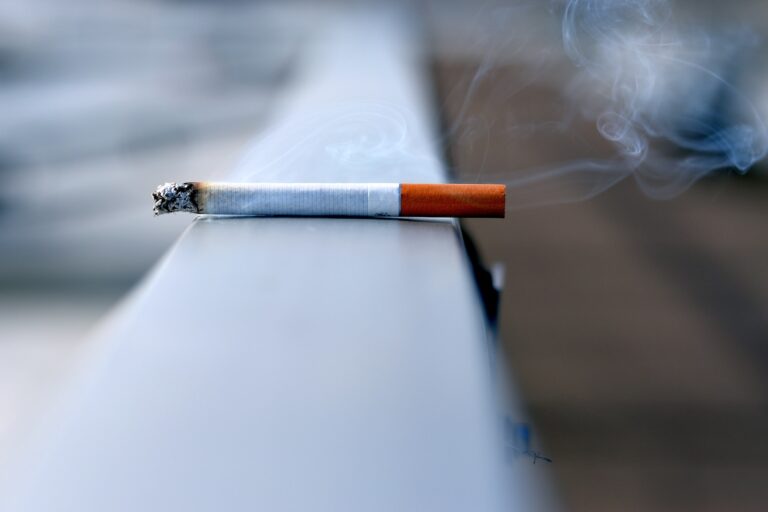Smoking has been shown to negatively affect both male and female sexual arousal, appetite and satisfaction in the bedroom. Thankfully, stubbing out that last cigarette could help to turn things around for good!
While it can be uncomfortable or even taboo to discuss changes in libido, they are very common among smokers. Let’s take a look at some of the factors that contribute to these changes.
How long does it take for libido to return after quitting smoking?
When you smoke, your body is ingesting around 600 chemicals that make their way into the bloodstream. These chemicals, mainly nicotine and carbon monoxide, are linked to a number of problems that include fertility issues, low libido and suboptimal performance in the bedroom. In recent years, studies drawing links between smoking and sexual health – particularly in men – have surged.
Many men experience erectile dysfunction (ED) as a result of smoking. Nicotine is a vasoconstrictor that narrows the blood vessels, reducing blood flow and thus making it harder to get an erection. However, this can be reversed very quickly if you stop smoking – in fact, most men who quit see a return of their libido almost immediately after they give up cigarettes.
In addition to ED, smoking can also lead to poor erection quality and premature ejaculation during sex. This is because smoking can reduce the oxygen levels in the blood, leading to a reduction in libido and a decline in sexual pleasure. However, this can be reversed by increasing blood flow and boosting nitric oxide levels.
For women, smoking is linked to fertility issues and a reduced sex drive. This may be because it can lower a woman’s natural estrogen levels, leading to mood shifts and vaginal dryness. In addition, a 2015 study found that smoking in premenopausal women was associated with lower sexual arousal and satisfaction.
What is libido?
Libido is a term that describes a person’s sexual drive or desire. It is influenced by a number of factors, including biological (such as sex hormones) and psychological (including stress and personality) factors. Libido can also be impacted by lifestyle and relationship issues. For example, some women find that their sex drive decreases after having children or if they are in a toxic relationship.
For men, a low libido can be caused by medical conditions such as prostate cancer or heart disease. It can also be a side effect of some medications, such as steroids or antidepressants. Other causes of low libido in men include stress, lack of exercise and sleep problems. In addition, some men may have trouble finding pleasure in sex because of past trauma or abuse.
Libido varies from woman to woman and there is no right or wrong level of libido. It is normal for it to fluctuate throughout the day and depending on factors such as hormone levels, medication, health, stress, and relationship issues. It is important to know if your libido is low so that you can talk with your doctor about it and try to determine the cause. There are a number of things that you can do to increase your libido, such as improving sleep habits, getting regular physical activity, and eating a healthy diet.
How can I get my libido back after quitting smoking?
Smoking is linked to several health conditions, including sexual dysfunction. Research suggests that nicotine affects libido in both men and women. A 2022 study found that current smokers experience a lower libido than nonsmokers and have more trouble achieving an erection. Quitting smoking can help improve libido and lead to healthier sexual functioning.
For men, nicotine reduces sperm count and motility. After quitting smoking, sperm motility returns to normal and men can achieve stronger erections. They can also benefit from improved circulation, which leads to less chance of ejaculation during sex. In addition, studies have shown that women who smoke can have a harder time reaching orgasm during sex. Quitting smoking can improve female libido and sexual satisfaction, as well as enhance sexual performance.
If you’re a smoker, it’s important to take steps to quit smoking as soon as possible. It can be difficult to overcome cravings for a cigarette, but there are many tools available that can make it easier to quit. You can try incorporating exercise into your routine, using nicotine patches or gum, or trying herbal remedies. Getting enough sleep, eating a healthy diet, and reducing stress can also improve sexual function.
If you are thinking about quitting, it is a good idea to speak with your healthcare provider. They can help you develop a plan that will work best for you.
How long does it take for my libido to return after quitting smoking?
Smoking tobacco and e-cigarettes, or using other nicotine products, can have negative effects on your libido. Many people are unsure whether this is a serious problem, or are too embarrassed to speak about it with their doctor or a quit smoking support group. However, sexual dysfunction caused by tobacco or nicotine use can be easily treated if you stop smoking and make healthy lifestyle changes.
Libido issues related to smoking can be a major reason for people struggling to quit. In addition to lowering a person’s overall libido, the chemicals in cigarette smoke can cause damage to a person’s lungs and heart. It can also affect a woman’s ability to have sex, because it interferes with a woman’s natural hormone production.
The good news is that libido can return quickly after quitting smoking. In fact, studies have shown that the effects of smoking on libido can be reversed within 20 minutes after your last cigarette. In men, a decrease in libido after smoking is often due to the effect of nicotine on blood vessels that deliver oxygen to the penis. This can lead to erections that are weak or unreliable. But, in one study, men who stopped smoking saw their libido increase within three months of stopping.
This was a randomized controlled trial in which men who were interested in quitting smoking received either the placebo patch or a high-dose nicotine patch. They were tested at baseline, mid-treatment, and 4-week follow-up. They were evaluated on their libido by self-report, circumference measurements via plethysmography, and viewed an erotic film. The results showed that compared to current smokers, successful quitters displayed faster onset of subjective sexual arousal, and had greater erectile tumescence responses.
See Also:



